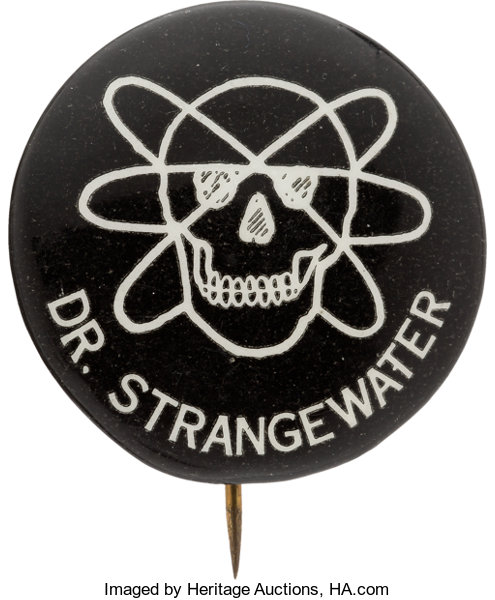Mediating the cold war
President barry goldwater
A dutch cold war fear
The Cold War was perhaps the most fear-inducing war in history. While it was not the most brutal or the longest war, it was the first war where humankind had the weaponry to cause such devastation to the earth that we would be no longer able to live on it. Movies such as Dr. Strangelove and games such as Fallout revolve around the idea that America is facing an enemy that also possesses nuclear weapons, creating a scenario where the usage of such weapons would lead to a domino effect of nuclear attacks due to the military strategy of mutually assured destruction (MAD).
Dr. STrangewater

During the Cold War, this enemy was the Soviet Union. Many Western-European nations were anxious about this situation, given the fact that they were geographically and politically positioned in between these two superpowers. In the Netherlands this feeling of anxiousness was highlighted by the strong opposition against America’s usage of hard power, such as the Dutch protests against the nuclear base in Volkel. However, this feeling of anxiety is also visible in Dutch media as can be seen in articles such as the one on the left.
This article was created by the Volkskrant on the second of December, 1961, by an anonymous columnist under the series ‘Vandaag en morgen’, titled “Ons doel in de koude oorlog”. It was created as a response to America’s hawkish stance regarding the fight against communism, as voiced by Barry Goldwater and Life Magazine. Based on Kennedy’s speech, he seemed to be willing to negotiate with the Soviet-Union, which is criticized by Goldwater and Life Magazine for being too passive. They argued that the president should strive for nothing less than the Soviet-Union’s unconditional surrender. However, the Dutch columnist rejects their argument, arguing that this mentality is dangerous for the western world since Europe has just fought two world wars and military altercations will only result in unnecessary bloodshed and destruction. Where the Netherlands and many other European nations believed that this war could only be resolved through the usage of political soft power, American figures such as Goldwater insisted that America should use its military weaponry to defeat the communist forces and ensure total victory. The Dutch were anxious about these American war hawks, especially since Goldwater would run for president a few years later.
However, this fearfulness was not only present in the Netherlands. During Goldwater’s presidential campaign, his political opponent, Lyndon B. Johnson, focused on a soft power stance that was similar to Kennedy’s and Lippmann’s, highlighting how the spread of capitalism and democracy would be America’s best weapon against communism. Johnson also criticized and feared Goldwater’s eagerness for victory, creating this particular pin in response (see image below). The pin is a direct reference to Dr. Strangelove, combining Goldwater’s and Dr. Strangelove’s name to discredit his opponent by insinuating that he would create the doomsday scenario that was highlighted in the movie, which came out earlier that year. The pin also combines the symbol of atomic energy with a skull, indicating that Goldwater’s presidency would be stained with the death and destruction of nuclear fallout.

Images ©
“Vandaag en Morgen: Ons doel in de koude oorlog”. De Volkskrant. ‘s-Hertogenbosch, 2 December 1961, Delpher, resolver.kb.nl/resolve?urn=ABCDDD:010877124:mpeg21:p017
“Dr. Strangelove Anti-Goldwater Pin” (1964). Heritage Auctions, historical.ha.com/itm/political/pinback-buttons-1896-present-/-lyndon-b-johnson-dr-strangelove-anti-goldwater-pin/a/6215-43850.s